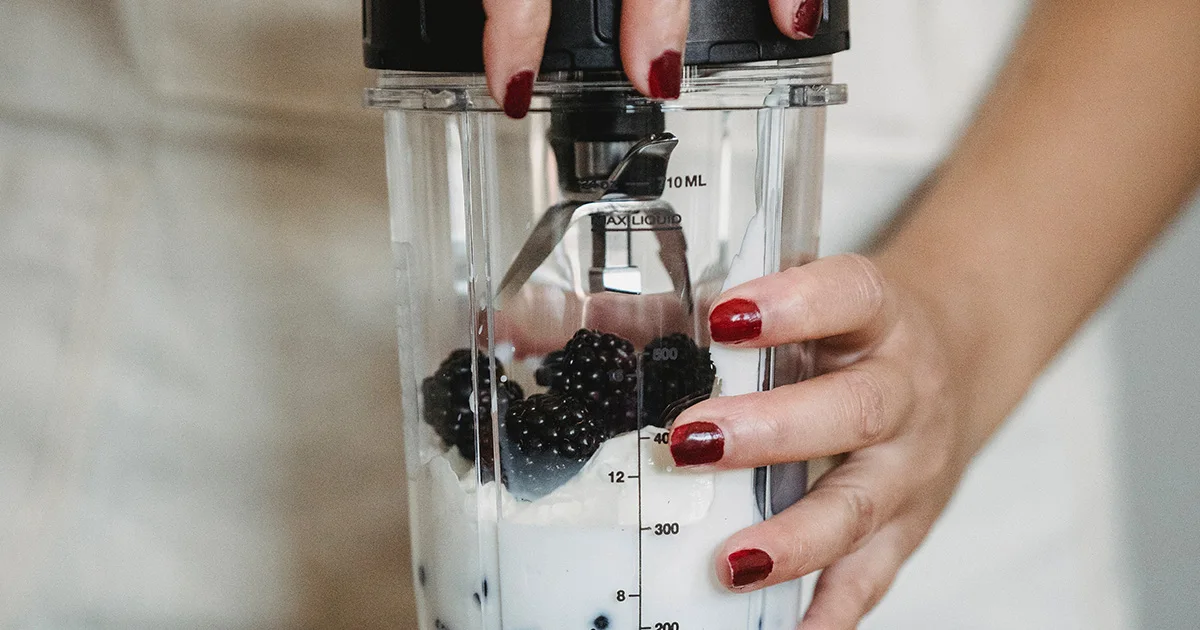Here's what we'll cover
Here's what we'll cover
Snacking is synonymous with chips, crackers, and other bite-sized baked goods. But these traditional snack foods are major sources of carbohydrates. Their hefty supply of so called net carbs (the carbs that the body can fully digest into glucose) makes them mostly off-limits to people on keto diets.
The good news is that there are plenty of portable, keto-friendly snack foods that can help satisfy your between-meal cravings. These easy keto snacks range from prepackaged foods you can buy at a store to homemade keto snacks.
Keep reading for a complete keto-snacks list, as well as keto-snack recipes and other helpful snacking info.
Healthy keto snacks and snack foods
Some traditional snack foods fit nicely into keto eating plans. Some are fat bombs—the kind of healthy fats you want—while others are a good source of nutrients. Many stores sell these foods packaged for easy on-the-go snacking. You can also buy them and assemble your own snack kits.
Your keto snack list includes (Kossoff, 2020; Durkalec-Michalski, 2019):
Nuts such as cashews, pecans, and almonds
Nut butters such as peanut butter or almond butter
Packaged cheese snacks such as string cheese or Babybel cheese
Pork rinds
Beef jerky or cured meats such as salami
Avocado or guacamole
Berries
Whole or sliced vegetables such as tomatoes, cucumber, bell pepper, broccoli, cauliflower, black olives, and mushrooms
Tinned fish such as mackerel or sardines
Canned tuna
Leafy greens such as arugula and spinach
Baked goods made with keto-friendly alternatives like almond flour or flax seed
Seaweed snacks
Of course, there’s no rule that you have to limit your snacking to “snack foods.” Especially if you’re meal prepping ahead of time, or you have access to a fridge and kitchen, you have options.
Other snackable keto foods include (Kossoff, 2020; Durkalec-Michalski, 2019):
Beef, pork, chicken, and other meats
Eggs (hard-boiled eggs or otherwise)
Bacon and sausage
Cheeses such as parmesan and mozzarella
Full-fat, unsweetened dairy products such as cream cheese
Very dark chocolate (look for sugar-free or products made with the sweetener Stevia)
Reading through that list should give you plenty of ideas. As a rule of thumb, snacks or meals you make at home from whole ingredients are often healthier. That’s because they tend to be unprocessed and free of preservatives (Wolfson, 2014).
But if you just want to buy pre-made keto snacks, pretty much every major supermarket chain or online retailer now stocks low-carb keto snack bars and other easy keto snacks for people on keto plans.
Keto snack recipes and ideas
If you’re looking for DIY inspiration, consider these sorts of easy keto snacks or keto recipes (Durkalec-Michalski, 2019; Hall, 2021).
Sliced or whole veggies with dips made of mayonnaise or yogurt (or both). Flavor your dip with salt, curry powder, garlic, and other seasonings. (Most spices are acceptable for people on keto plans.)
Scrambled eggs or omelets made with cheddar cheese and vegetables, cooked with butter or coconut oil
Zucchini pasta with meat or cheese sauce
Kale or veggie chips
If you’re packing up sliced vegetables or fruit ahead of time, keep in mind that lemon juice is a natural preservative. A little drizzle will keep your cut-up produce from turning brown (Klimek-Szczykutowicz, 2020).
Snack foods that aren’t low-carb or keto-friendly
You probably know all about the high-carb foods that are off-limits. But if you need a refresher, be sure to avoid these keto villains (Durkalec-Michalski, 2019):
Cereal products
Pasta
Bread, bagels, and most baked goods
Chips, crackers, and other crispy treats
Bananas and starchy fruits
Potatoes and other starchy vegetables
Foods with added sugar, such as fruity yogurts
Gatorade and many other workout bars or drinks
A quick rundown of the keto diet
Like a car, the human body needs fuel. Normally, that fuel is glucose. Glucose is a type of energy your body makes from the carbohydrates in food. If you don’t eat carbs, your body has to find other sources of energy. One of those alternative energy sources are so-called ketone bodies. Your body can make these from fatty foods in your diet or by breaking down its own fat and fatty acids (Masood, 2020).
When your body swaps out glucose for ketone bodies as its primary source of energy, you’ve entered “ketosis” or a “ketogenic state.” This is the goal of the keto diet, and it’s this switch that research has linked with many health benefits (Masood, 2020).
To make this switch, you restrict your daily intake of carbs. Most keto diets recommend that you get just 5% or 10% of your total calories from carbs. Fatty foods should make up the bulk of your calories—roughly 55% to 60% of your total diet. High-protein foods comprise the rest (Masood, 2020).

The possible benefit of a keto diet
Keto diets may help you lose weight. After just 12 weeks of keto, men lost an average of 40 pounds, while women lost 24 pounds. That’s according to a recent study in the journal Nutrition Research. That study also identified improvements in cognitive performance (Mohorko, 2019).
That study is not an outlier. Many others—including work on very low-carb diets like keto—have also found weight-loss benefits (Ludwig, 2021). There are several theories as to why the keto diet might promote weight loss, though they have not been consistently shown in research. One is that ketone bodies—the body’s main fuel source on the diet—curb someone’s appetite (Gibson, 2015).
That said, the weight-loss research on keto is not definitive. Not all use exactly the same foods or diet approaches, which makes their results iffy (Trimboli, 2020).
Moving past weight loss, there’s evidence that ketogenic diets may lower your risk for Type 2 diabetes and heart disease (Masood, 2020). They may also protect your brain from age-related diseases like dementia, but more research is needed (Ludwig, 2021).
Is snacking healthy?
Even if you’re sticking to keto-friendly foods, the evidence on the health effects of snacking is mixed.
Some research has found that, so long as your snack foods are healthy, eating a small snack between meals could be beneficial. Especially if snacking helps you eat less at mealtimes, it could be a healthy habit (Marangoni, 2019).
On the other hand, some research—much of it on fasting diets—argues that eating too often is unwise, even if you’re eating healthy foods. Your body isn’t designed to be breaking down food molecules all day long. And so sticking to two or three daily meals, and skipping snacks, may be optimal (Paoli, 2019).
Right now, the jury’s still out on snacking.
Is there a bad time of day to snack?
Assuming the research eventually lands in favor of snacking, there may still be times when you should avoid it. Some research has found that eating in the hours close to nighttime sleep might promote weight gain, heart trouble, and other health risks. But again, the evidence for or against nighttime snacking is mixed (Kinsey, 2015). While experts sort out the risks and benefits of snacking—and of keto diets—your best bet is to stick to healthy foods that fit in your eating program. And if you’re on a keto diet, you have lots of easy, healthy—and yes—delicious options.
DISCLAIMER
If you have any medical questions or concerns, please talk to your healthcare provider. The articles on Health Guide are underpinned by peer-reviewed research and information drawn from medical societies and governmental agencies. However, they are not a substitute for professional medical advice, diagnosis, or treatment.
Durkalec-Michalski, K., Nowaczyk, P. M., & Siedzik, K. (2019). Effect of a four-week ketogenic diet on exercise metabolism in CrossFit-trained athletes. Journal of the International Society of Sports Nutrition, 16(1), 16. doi: 10.1186/s12970-019-0284-9. Retrieved from https://pubmed.ncbi.nlm.nih.gov/30953522/ .
Hall, K. D., Guo, J., Courville, A. B., Boring, J., Brychta, R., Chen, K. Y., Darcey, V., Forde, C. G., Gharib, A. M., Gallagher, I., Howard, R., Joseph, P. V., Milley, L., Ouwerkerk, R., Raisinger, K., Rozga, I., Schick, A., Stagliano, M., Torres, S., Walter, M., … Chung, S. T. (2021). Effect of a plant-based, low-fat diet versus an animal-based, ketogenic diet on ad libitum energy intake. Nature medicine, 27(2), 344–353. doi: 10.1038/s41591-020-01209-1. Retrieved from https://www.nature.com/articles/s41591-020-01209-1.
Kinsey, A. W., & Ormsbee, M. J. (2015). The health impact of nighttime eating: old and new perspectives. Nutrients, 7(4), 2648–2662. doi: 10.3390/nu7042648. Retrieved from https://www.ncbi.nlm.nih.gov/pmc/articles/PMC4425165/.
Klimek-Szczykutowicz, M., Szopa, A., & Ekiert, H. (2020). Citrus limon (Lemon) Phenomenon-A Review of the Chemistry, Pharmacological Properties, Applications in the Modern Pharmaceutical, Food, and Cosmetics Industries, and Biotechnological Studies. Plants (Basel, Switzerland), 9(1), 119. doi: 10.3390/plants9010119. Retrieved from https://www.ncbi.nlm.nih.gov/pmc/articles/PMC7020168/.
Kossoff, E. H., Turner, Z., Adams, J., Bessone, S. K., Avallone, J., McDonald, T., Diaz-Arias, L., Barron, B. J., Vizthum, D., & Cervenka, M. C. (2020). Ketogenic diet therapy provision in the COVID-19 pandemic: Dual-center experience and recommendations. Epilepsy & behavior : E&B, 111, 107181. doi: 10.1016/j.yebeh.2020.107181. Retrieved from https://www.epilepsybehavior.com/article/S1525-5050(20)30360-7/fulltext.
Ludwig D. S. (2020). The Ketogenic Diet: Evidence for Optimism but High-Quality Research Needed. The Journal of nutrition, 150(6), 1354–1359. doi: 10.1093/jn/nxz308. Retrieved from: https://academic.oup.com/jn/article/150/6/1354/5673196 .
Marangoni, F., Martini, D., Scaglioni, S., Sculati, M., Donini, L. M., Leonardi, F., Agostoni, C., Castelnuovo, G., Ferrara, N., Ghiselli, A., Giampietro, M., Maffeis, C., Porrini, M., Barbi, B., & Poli, A. (2019). Snacking in nutrition and health. International journal of food sciences and nutrition, 70(8), 909–923. doi: 10.1080/09637486.2019.1595543. Retrieved from h ttps://pubmed.ncbi.nlm.nih.gov/30969153/.
Masood, W., Annamaraju, P., & Uppaluri, K. R. (2020). Ketogenic Diet. In StatPearls. StatPearls Publishing. Retrieved from https://www.ncbi.nlm.nih.gov/books/NBK499830/ .
Mohorko, N., Černelič-Bizjak, M., Poklar-Vatovec, T., Grom, G., Kenig, S., Petelin, A., & Jenko-Pražnikar, Z. (2019). Weight loss, improved physical performance, cognitive function, eating behavior, and metabolic profile in a 12-week ketogenic diet in obese adults. Nutrition research (New York, N.Y.), 62, 64–77. doi: 10.1016/j.nutres.2018.11.007. Retrieved from https://pubmed.ncbi.nlm.nih.gov/30803508/ .
Paoli, A., Tinsley, G., Bianco, A., & Moro, T. (2019). The Influence of Meal Frequency and Timing on Health in Humans: The Role of Fasting. Nutrients, 11(4), 719. doi: 10.3390/nu11040719. Retrieved from https://www.ncbi.nlm.nih.gov/pmc/articles/PMC6520689/ .
Trimboli, P., Castellana, M., Bellido, D., & Casanueva, F. F. (2020). Confusion in the nomenclature of ketogenic diets blurs evidence. Reviews in endocrine & metabolic disorders, 21(1), 1–3. doi: 10.1007/s11154-020-09546-9. Retrieved from https://pubmed.ncbi.nlm.nih.gov/32080796 /.
Wolfson, J. A., & Bleich, S. N. (2015). Is cooking at home associated with better diet quality or weight-loss intention?. Public health nutrition, 18(8), 1397–1406. doi: 10.1017/S1368980014001943. Retrieved from https://www.cambridge.org/core/journals/public-health-nutrition/article/is-cooking-at-home-associated-with-better-diet-quality-or-weightloss-intention/B2C8C168FFA377DD2880A217DB6AF26F .










